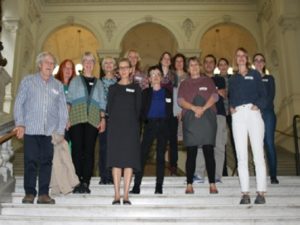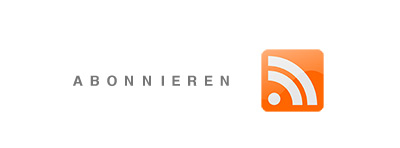by
Li Gerhalter and Christa Hämmerle
[1] In June 2015, a network of collections of auto/biographical writings or – at first defined more narrowly – of diary archives and collections was founded in Amsterdam. It was initiated by Miriam Nieboer, Monica Soeting and Nina Wijsbek from the “Nederlands Dagboekarchief” [Dutch Diary Archive], and it was agreed to name this European network “EDAC – European Diary Archives and Collections”. Since then, the EDAC network successfully expanded. Currently it has 11 member institutions in Germany, France, Great Britain, Italy, the Netherlands, Austria and Hungary, including Philippe Lejeune, the well-known theorist of auto/biographical writings, who founded the “Association pour l‘autobiographie et le patrimoine autobiographique (L‘APA France)” in France in 1991. Staff members of the Dutch Diary Archive in Amsterdam are in charge of coordinating EDAC’s activities.
[2] After a smaller scale network meeting at the “Deutsches Tagebucharchiv” [German Diary Archive] in Emmendingen in late autumn 2017, the second EDAC network meeting took place in Vienna on 19 and 20 October 2018. The two-day event was organised by the “Sammlung Frauennachlässe” [Collection of Women’s Personal Papers] at the University of Vienna’s Department of History, and could successfully establish further networking throughout Europe.
[3] The meeting opened with a round-table discussion on the topic “What is a diary?” Representatives of five EDAC member institutions reported their experiences with the collection of diaries and other autobiographical texts, and reflected on genre definitions. During the debate it became very clear that – consistent with the substantial diversity and fluidity of all surviving diaristic texts in various archives or collections – these definitions must be formulated in a wider sense. This is all the more important when looking in detail at the heterogeneous writings of “ordinary people” or those who, in different scientific cultures or literary canons, have long been excluded from the diary genre – such as women, young girls, the peasantry and common soldiers etc. The collections of the EDAC member institutions comprise many fascinating examples which show this.
[4] Furthermore, the round-table discussion demonstrated that the scale of the collections of diaries or diary-like texts held by EDAC institutions is enormous. However, EDAC archives and collections do not only focus on this particular type of ego-documents, even though some names suggest that they do so. They also collect various other forms of auto/biographical sources, what was also discussed in the subsequent coordination meeting with all EDAC members. Thus, it was decided to rename the network the “European Ego-Document Archives and Collections Network“, keeping the acronym EDAC. As a result, more archives or collections have the chance to join the network now; an objective which was explicitly mentioned at the meeting.
[5] Other topics discussed at the coordination meeting included financial aspects as well as questions about the structure and organisation of the EDAC member institutions. It became clear that framework conditions of these institutions differ substantially; some can rely on remunerated work (paid by communities, overarching institutions) whereas others primarily depend on voluntary work and must organise their funding each year – sometimes in vain. At the same time, all EDAC member institutions face similar problems such as the European Data Protection Regulation and increasing inquiries of researchers, the media, exhibition projects etc.

[6] Overall, the EDAC meeting in Vienna took place in a very constructive atmosphere. It ended with the presentation of two MA-theses by students of the University of Vienna (Sarah Seidl, Veronika Siegmund) , who, under the supervision of Christa Hämmerle, analysed some women´s diaries from different historical contexts (birth and childbed during the nineteenth century, the Children´s Evacuation Programme of the Nazis during World War II) which were provided by the “Sammlung Frauennachlässe”. The MA theses proved the potential of these sources for historical research. Each of them tells a unique story. However, research on auto/biographical texts in general also has a European dimension, as represented by the EDAC network. It remains to be hoped that its collections will be used more frequently to strengthen comparative European research.
[7] The next EDAC meeting is planned to take place at L‘Archivio Diaristico Nazionale [The National Diary Archive] in Pieve Santo Stefano, Italy.
Documentation:
Philippe Lejeune: „Cher cahier…“ Témoignages sur le journal personnel, 1990. Deutsche Ausgabe: Liebes Tagebuch. Zur Theorie und Praxis des Journals, 2014, München: Belleville Verlag, ISBN 978-3-943157-76-5
Li Gerhalter and Christa Hämmerle (Ed.): Krieg – Politik – Schreiben. Tagebücher von Frauen (1918–1950), Wien/Köln/Weimar 2015. ISBN 978-3-205-78942-0
Quote as: Li Gerhalter and Christa Hämmerle, European Ego-Documents Archives and Collections Network – EDAC. In: Wolfgang Schmale, Blog Mein Europa: https://wolfgangschmale.eu/ european-ego-documents-archives-and-collections-network-edac.


